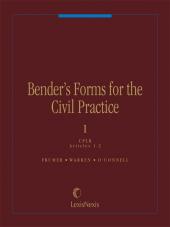
These include sample complaints, motions, answers, interrogatories and other similar pleadings and filings and can also include criminal court filings. The best way to locate appropriate litigation forms is typically to select your jurisdiction and then review form books specific to that jurisdiction. See the General Forms section for descriptions of each resource.
Bloomberg Law:
PLI PLUS:
Lexis+:

Westlaw:
Practical Law (on Westlaw--look for Practical Law link on main Westlaw homepage)
It is important to gather as much information as possible from the client at the initial meeting so you can determine what types of claims to file (or what defenses to mount). Using an interview template that is tailored for a particular area of law or type of case can be a very useful guide as you conduct the initial client meeting. Larger firms may have their own standard intake forms available but it can be helpful to turn to sample forms if such customized forms or unavailable or you find yourself working in a new practice area. These forms tend to be jurisdiction and practice area-specific. Below are a few examples.
 The Counselor-at-Law: A Collaborative Approach to Client Interviewing and Counseling
by
The Counselor-at-Law: A Collaborative Approach to Client Interviewing and Counseling
by
The following resources can help you select the appropriate claims/defenses to fit your fact as can practice guides for your practice area and/or jurisdiction (many will include sample answers/complaints and other filings in their appendices):
Look for checklists in practice guides for your jurisdiction or subject area like:
Review Court Rules for your jurisdiction--KeyRules are especially helpful for drafting complaints, answers, motions etc. for state trial courts. See Court Rules box on this page for additional resources.
Look for samples that have been filed in other cases in Trial Court Documents databases: